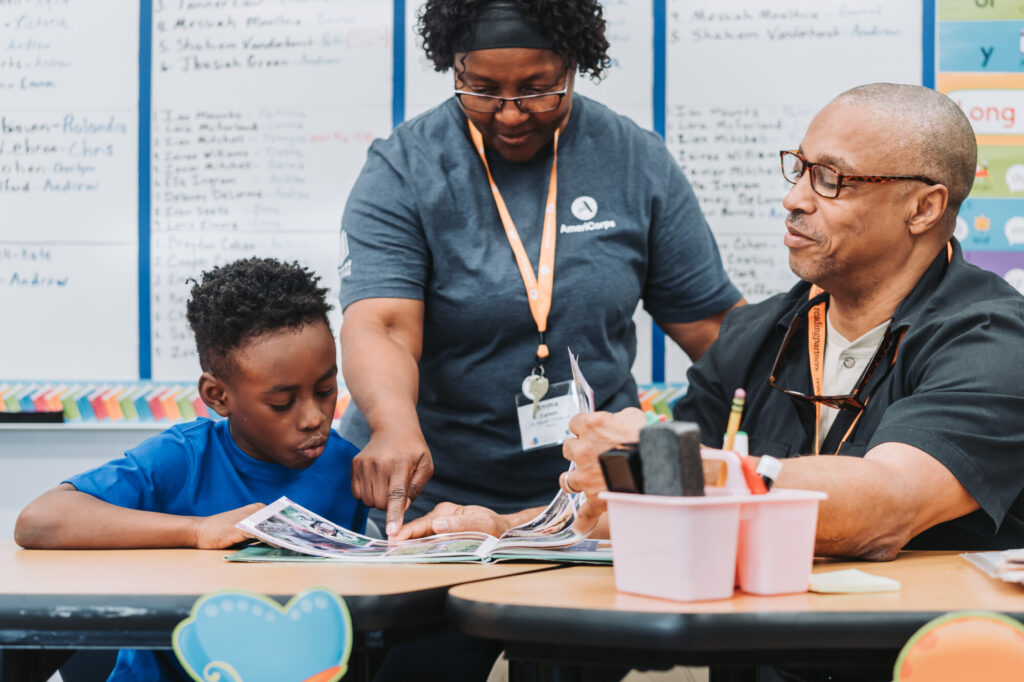
Why I love poetry and you should too
April 10, 2020
AmeriCorps site coordinator
I can’t inspire like William Shakespeare. I can’t be as calm and collected as the great Maya Angelou nor do I have the outspoken and articulate prowess as Kendrick Lamar. But just because my poetry hasn’t piqued much fanfare does not mean that I’ll be tossing all forms of poetic expression into the cerebral waste bin. In fact, it helps me explore and express my thoughts in ways I wouldn’t have the chance to in a typical conversation.
In light of National Poetry Month, let me share with you some reasons why YOU should dip your metaphorical quill in the poetry ink well.

What makes writing poetry so special?
1) Develops critical thinking
How did Dr. Seuss conjure the idea of a “Who?” Where did Kendrick Lamar find his Pulitzer Prize winning poetic voice? Who ever comes up with those catchy jingles on television ads?
Poetry opens up opportunities for creativity and squeezes a dose of fun into the critical thinking department. People can spend minutes or hours writing a neat haiku or years developing epics that will forever be remembered in history.
2) Gets you out of your comfort zone
I am an extreme introvert. But I also have a ton of opinions which I am too afraid to hurl onto people at a moment’s notice. By combining these two through slam poetry, I am able to practice public speaking, build connecting points with others, and… get out of the house more often. Forcing myself into these situations has opened up many experiences I otherwise would not have fathomed. As you embarrass yourself and make mistakes, you learn to embrace your flaws and build confidence in the things you excel at. I don’t think I would have had the confidence to write this article for Reading Partners if it weren’t for the experience of exploring slam poetry.
3) Speaks to more challenging issues
Have you wondered about how you could share your feelings about a political issue? Social justice? Personal struggles? Nothing is more liberating than exposing your thoughts and emotions to open ears (or even to yourself through a personal notebook). So many artists talk about civil rights, mental health, sexuality, and other topics that may seem too taboo to bring up in daily conversation. It might even spark new conversations afterwards!
How can you get started?
1) Read, read, read
Novels. Poetry books. News articles. Blogs. Anything and everything that has a label on it. As you immerse yourself into different stories and expose yourself to new words, it will jumpstart your brain to link nouns, adjectives, and verbs with rhymes, puns, and metaphors and get your creative juices flowing—like the Mississippi into the Gulf of Mexico. Goodreads is a great online source to both discover books and connect with friends from around the world.
2) Listen, listen, listen
You can find fantastic resources on social media platforms, the radio, and even your local coffee shop! There are vast networks of vocalists and spoken word artists who are all vying for top spots in these arenas.
Once you’ve found a few influences that intrigue you, hold on tightly to them—like grandma’s hugs on a Sunday afternoon. Then, when you go to write your own poetry, imagine what emotions you would want your readers and listeners to feel. What strings are you trying to pull? What subjects resonate with you deeply?
3) Experiment, experiment, experiment
As with any other skill, it is daunting to get out of your comfort zone and enunciate the flash of confusing phrases and rhymes that you scribble down in your notebook (or if at a restaurant, your disposable napkin). Or you might be afraid that your loved ones will take it the wrong way if you share the poem you wrote about comparing them to your beloved 15-year-old garden gnome, for example. As you practice, you will discover the things that you enjoy writing about and further your perspective as a poet. Honestly, the possibilities are endless.
Parting words
I hope you’ve gained an inkling of inspiration to dabble into poetry. All you will need to get started is a pen and paper. Remember: speak your mind, don’t hold back, and have fun!
Banner photo by Negative Space




